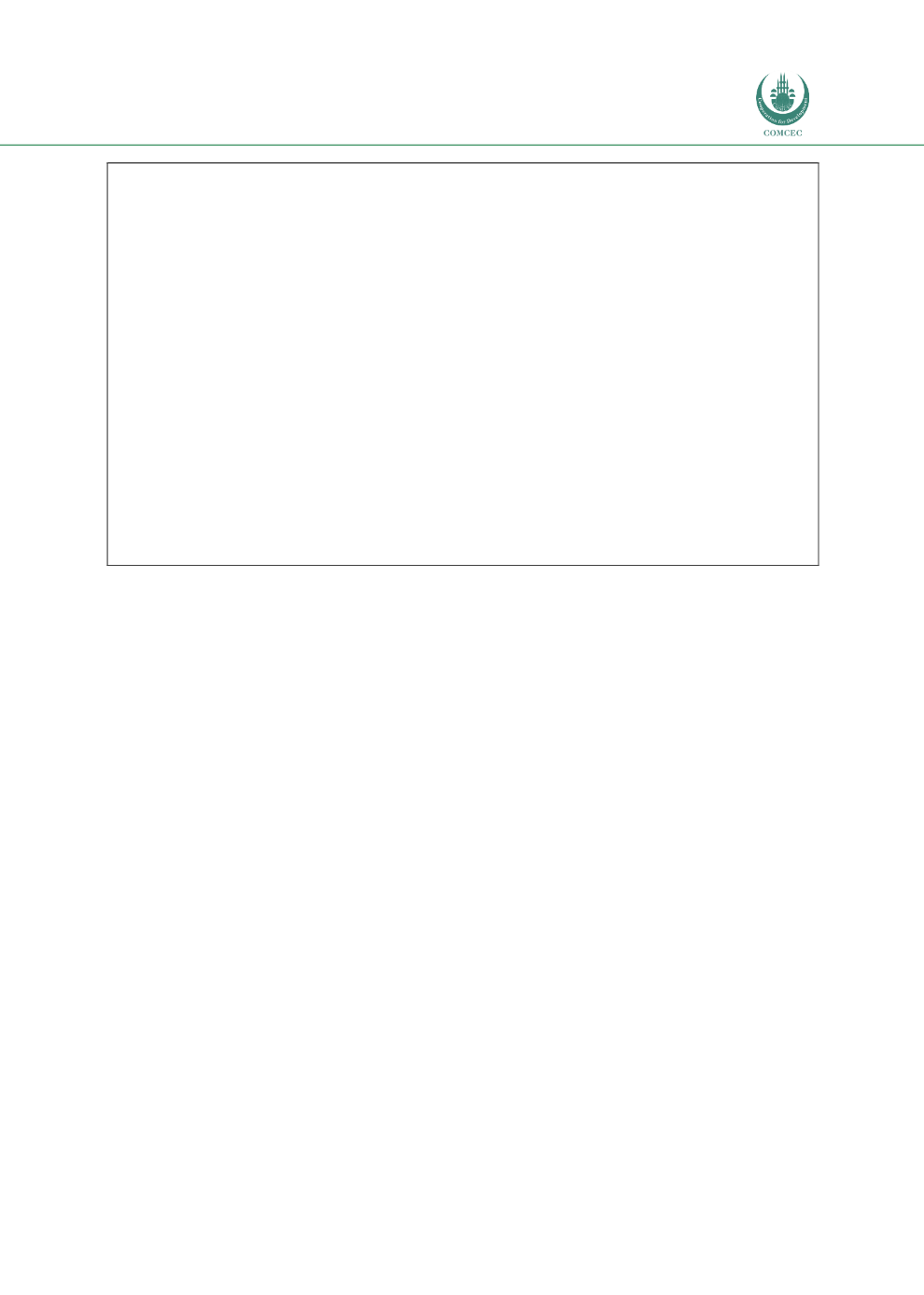

Islamic Fund Management
131
Investible assets: Shariah-compliant listed securities
Reference index: 100% MASI
Recommended investment period: Minimum 5 years
Maximum upfront fee: 3%
Maximum redemption fee: 1.5%
Maximum management fee: 2.4%
Wafa Gestion employs two filters to determine the Shariah-compliance of equities:
Sectoral (excluding banks, insurance, leisure and alcohol)
Financial (Debt/Total assets < 33%, Financial income/Net income < 10%)
The screen provides for 35 compliant stocks (representing more than 55% of total market
capitalisation) out of the total 75 stocks listed on the exchange.
Attijari Al Moucharaka has a different investor’s structure compared to the local asset management
industry. More than 2/3 of its clients are individuals while the industry has more institutional
investors. Some are Islamic-only investors. The fund has generally performed well, with a 20%
alpha over the Index in the last 10 years.
The second Shariah-compliant fund is considerably smaller with 6 million dirhams of AuM; it is an
ethical retirement fund targeting retail investors.
Source: Wafa Gestion (nd)
4.4.3
Investment and Commercial Considerations
Morocco’s Islamic finance industry is poised for growth. The country has the necessary
economic, financial and political fundamentals to position itself as an international financial
centre and a regional financial hub, incorporating the entire gamut of Islamic financial
products and services. Investment funds are among the key products that Morocco can tap.
Among the investment and commercial considerations for the development of Islamic funds in
Morocco is for the industry to build up the asset side of the market, by creating liquidity and
thus supporting the sukuk and
takaful
sectors. The case of Wafa Gestion, expounded in
Box 4.6 ,lends support to the positive performance of Shariah-compliant funds and their demand
by investors, both Muslim and non-Muslim. The fund invests in equities listed on the
Casablanca Stock Exchange. If the stock exchange comes up with an official list of Shariah-
compliant equities which it publishes and updates regularly (as in the case of Malaysia, for
example), it will certainly promote the creation of more Islamic equity funds. The development
of an Islamic index over time will promote the creation of even more ETFs.
There is also significant potential for the development of new asset classes in Morocco, such as
renewable energy, green finance, healthcare, real estate (e.g. student accommodations,
retirement homes), and innovation and technology. Morocco has particularly clear and
ambitious renewable-energy goals, to produce more than half of its energy needs through
renewable sources by 2030. The move represents part of a national push to curb greenhouse
gas emissions, reduce pollution, and improve Morocco’s energy security
.
The promulgation of a
renewable energy legal framework has propelled the nation to becoming a stable destination
for renewable energy investments.
















